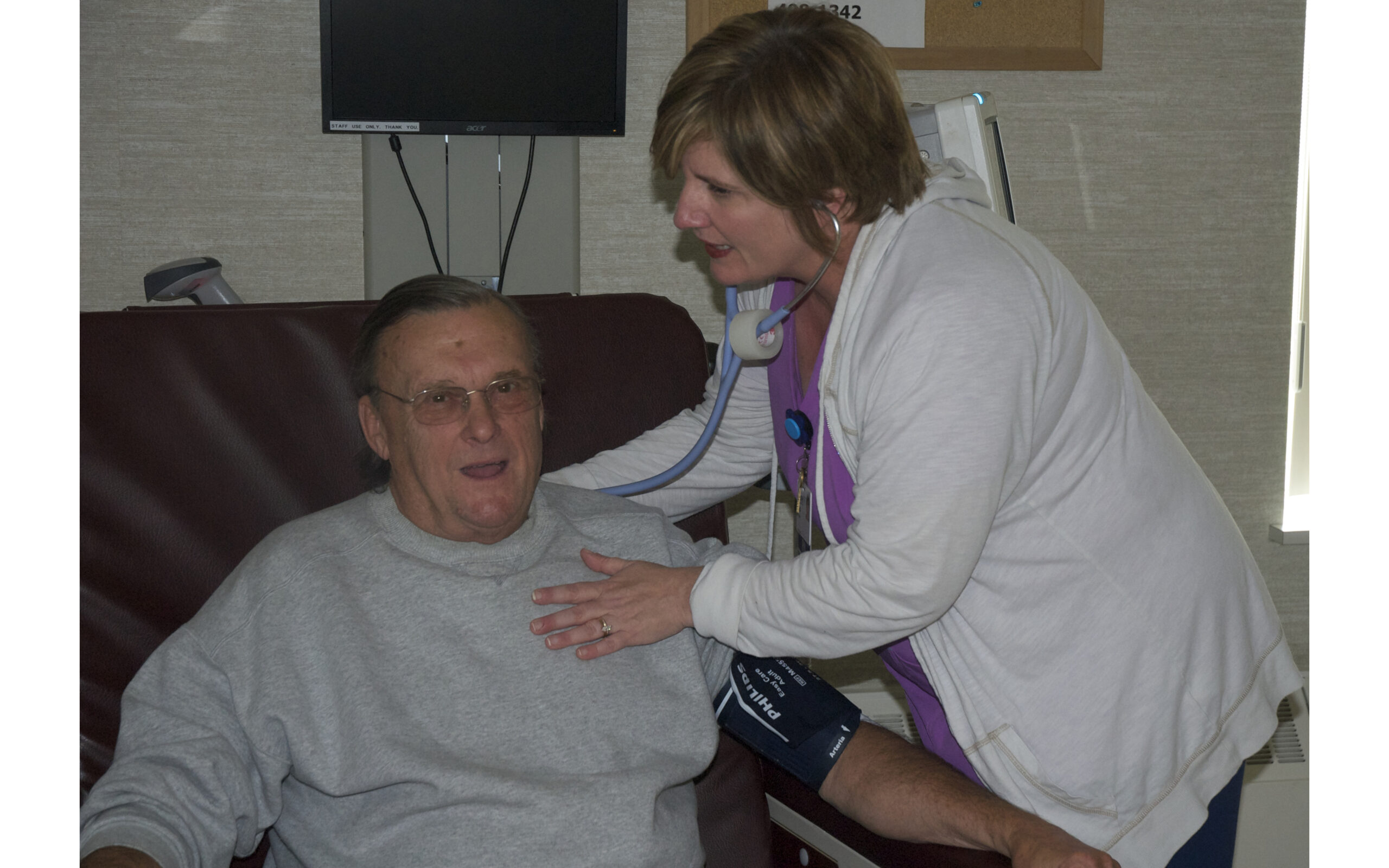
CARIBOU, Maine — A U.S. Department of Veterans Affairs program designed to provide rural veterans access to health care closer to home has exceeded expectations, according to northern Maine health officials.
In 2008 Project ARCH — Access Received Closer to Home — designated five pilot sites around the country and three years later officials announced Cary Medical Center in Caribou would be one of those sites.
If not for ARCH, according to Kris Doody, Cary’s chief executive officer, those veterans would have to drive up to five hours one way to get the same care from VA doctors at the Togus Medical Center in Augusta.
“It is absolutely a success,” Doody said last week. “To date, there have been 12,000 patient authorizations for specialized care [and] our veterans can have a multitude of services right here.”
Those services can include orthopedic surgeries such as knee replacements, diagnostic screenings such as colonoscopies or heart-related treatments, Doody said.
Primary care visits are included under ARCH, she said, but thanks to the VA’s Community Based Outpatient Clinic — or CBOC — at Cary, veterans are able to receive those services close to home, also.
“We are very fortunate to have a CBOC here,” Doody said. “When the [VA] doctors see a patient there for primary care and if that patient needs specialized care they can make a referral to Cary through Project ARCH and that care is coordinated between Cary and ARCH.”
Which is exactly how Craig Clowes, a 65-year-old Vietnam-era veteran living in Caribou was able to have his knee replacement surgery in 2012 at Cary instead of driving 200 miles to Togus for the same procedure.
“It’s hard going to drive to Togus and back,” Clowes said. “Being able to have the surgery here made it easier on me and my wife and family.”
Doody said veterans from Millinocket to Fort Kent are taking part in the ARCH program, saving millions of miles in travel since it began in 2011.
The hospital CEO did not have the exact numbers of miles saved to date, but said it totaled more than 250,000 miles the first year alone.
“We are averaging 12 to 14 [ARCH] patients a day at Cary,” she said. “These are veterans who otherwise would have to drive down to Togus.”
According to Bill Flagg, Cary’s director of communications, saved miles translates into saved dollars.
“ARCH makes getting the care not only convenient for our veterans, but it is saving them time and money,” he said. “Because they do not have to travel so far, they are getting needed care sooner and that prevents more costly health issues later on.”
The medical providers at Cary are paid through Veterans Affairs.
The program has moved from “pilot” status to “federally funded” status, Doody said, and in two years will apply for permanent status.
She stressed the program is in no way in competition with the services provided at Togus; rather, the two medical facilities complement each other.
Doody and Flagg said getting to that point started nearly three decades ago when area veterans began meeting to advocate for a veterans’ hospital in northern Maine.
“Those vets were told multiple times it would never happen,” Flagg said. “They were told they had zero chance.”
But the veterans, with support from Cary and local and state politicians prevailed and in 1982 the VA clinic opened at the hospital.
“Once that happened, there was a real feeling that there was a need for advanced and long-term care options for our veterans in northern Maine, Flagg said. “So they went back to work and established the veterans’ residential facility here.”
Having the ARCH program connected to a facility with a community based clinic and long-term care facility makes it unique among the five ARCH programs, Doody said.
“We really are a model for the rest of the country,” she said.
“It’s a fantastic program,” former U.S. Rep. Mike Michaud said last week. “It’s probably one of the better programs we initiated.”
In 2008 Michaud co-sponsored and helped pass the legislation creating ARCH, which was supported by U.S. Sen. Susan Collins of Caribou.
“The ARCH program in Maine is a model for the nation,” Collins said in an email to the BDN. “Rural veterans in northern Maine have come to depend on the ARCH program to connect with health care services close to home and close to their families.”
In addition to the program at Cary, there are ARCH programs in Farmville, Virginia; Pratt, Kansas; Flagstaff, Arizona; and Billings, Montana.
Giving veterans the option of staying close to home is the whole idea behind ARCH, Michaud said.
“We wanted to provide care close to home and see how it worked,” he said. “It has worked extremely well because the more our vets can access health care closer to home, the more they tend to use it [and] access to good quality health care is crucial for our vets.”
Lara Boudreau is a nurse at Cary and saw firsthand how the ARCH program works after her husband was able to receive specialized treatment at the hospital.
“If it wasn’t for ARCH, he would have had to travel out of state for the procedure at the only VA hospital doing it,” she said. “It’s fabulous and an amazing benefit for our community.”
Clowes said he would like to see more veterans use the care available locally and Doody said the hospital is more than ready to help them do just that.
“In the long run it is saving vets and the government big money,” Clowes said.







